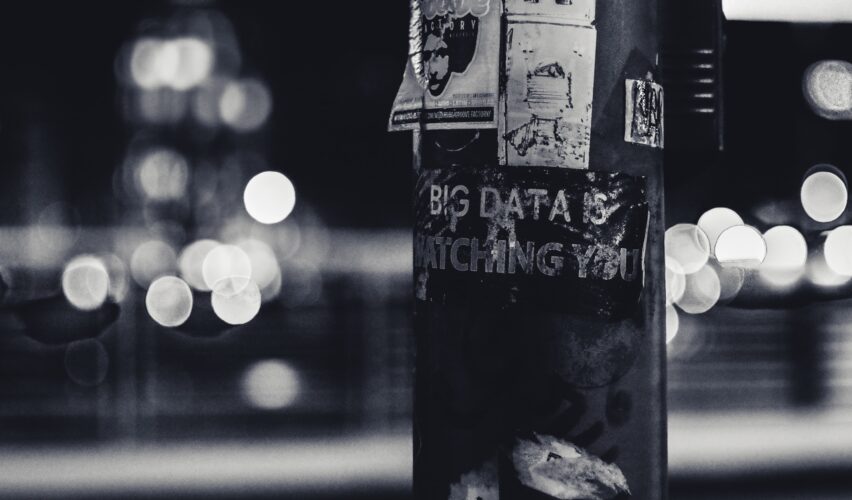These days we hear, read and discuss a lot about sharing big data. Notably about business to government (B2G) data sharing. Despite all the noise, we are not there yet.
In an era of increasing urban concentration, the multiple risks that our society faces at the environmental, social or economic spheres can be better addressed by adopting innovative and well-informed urban policies. Those policies can not ignore the potential offered by the set of processes and technologies grouped under the generic ‘big data’ buzz-word.
If we take an historical angle, after the ‘big bang’ explosion of data, the new ‘dataverse’ is experiencing a quick inflationary phase. An inflationary expansion that is everything but homogeneous.
Clearly, Internet businesses are leading the way fueled, first, by the inherent use of big data related technologies, some of which are even powering the development of the general concept of big data itself, and, second, by the highly competitive and innovative markets in which those companies operate.
A dataverse fueled by dark private data
However, the use of big data that those Internet giants make is only serving the purposes of their internal business development. In some cases, those companies are disrupting local economies in areas such as transportation or accommodation while bypassing local regulations. Über is a good example of a new paradox. The serious blow that they afflict to the community of local cab drivers not only affects self-employment in the city but also leads to a reduction in the overall local tax collection.
To aggravate the bleeding, their systems may very well use, for instance, the data about road outages that the city hall releases in open data formats for routing optimization purposes, while the company locks the vast amount of valuable information gathered through their daily trips around the city.
guiThere is astonishingly (although still some) little evidence of big data providing actual value for cities and communities compared to what it brings internally to the most advanced companies, besides the indirect benefits that provides, through the explosion of new Internet businesses, in those communities where the companies that are effectively using big data at their core of their businesses sit and pay most of their taxes.
Gaps and opportunities for public data sharing policies
As a consequence of this gap between the value that big data provides internally for private organizations and what it does for the general public, we infer that there is a clear potential to increase the economic and social dividends of big data.
Back in 2015, in the absence of city, state, or nation-wide regulations about data sharing schemes, we felt that there was room for an organizational and conversational approach to a mutual relationship between key city players (public and private) that would allow sharing big data to create ‘big knowledge’, in ways that favor public interests while protecting individual privacy and legitimate business assets.
We had been exploring this idea for some time in conversations with researchers at home. Thanks to the support of Real Colegio Complutense, a joint institution between Harvard University and several Spanish universities, in the summer of 2015 we were able to expand this exploration to the Boston area, one of the most innovative millieus in the world.
I met with prominent urban practitioners such as Nigel Jacobs (Head of the Urban Mechanics group at the Bostin City Council) academics and researchers to shape this idea of a ‘shared, city-wide approach, capable of turning dark urban big data into local civic energy’.
A guideline for urban big data sharing
The work was published by the University of Florida in two chapters of vol. 8 of their Network Design and Optimization for Smart Cities series. In those chapters we depicted how this big data sharing system could work and what a possible governance scheme of such a system could be.
Most importantly, I highlighted the risks and benefits of such a systems for individual digital rights. For example, the right to privacy and the right also to be on the “interesting” side of the data divide, that gap between those who have the skills to extract the value from big data and those who haven’t.
For the reader wishing to download my work ‘A guideline for a public.private partnership on urban big data sharing’, it can also be accesed here under a creative commons license.
Funding data sharing platforms
In 2018 I was hired as an expert by the European Commission to evaluate proposals for the Urban Innovative Actions program (UIA). I then realized how urban big data sharing was turning into a hot topic in urban policies throughout Europe. Many cities were asking for funds (a typical amount for a UIA project is around 5 MEUR) to set up urban data sharing platforms mainly in the fields of mobility and environment. And some cities got them.
We realized, however, that these proposals of new data platforms were still much guided by technologists. As a result, many of them were relying too much on the promises of technology, and some of them were underestimating the impact on digital rights of such systems, thinking in good faith that complying with the recently issued GDPR automatically placed citizens on the safe side.
However, that is not exactly true. As the Cambridge Analytica scandal or the epic data leak of the adult site Match.com showed, GDPR compliance is not enough for protecting privacy: if cities were fully embarking in data sharing policies, they needed toollkits and guidelines.
Citizen Data Principles
By the end of 2018, at a Eurocities KSF meeting, the Declaration of Zaragoza led to the Eurocities’ Citizen Data Principles. In that declaration cities defined the role of citizens as data custodians and clearly stressed the character of urban data as a public asset that needed to be used for the common good.
As chair of Eurocities Data Working Group, I was given the opportunity to express these views in front of the European Experts Group on Data Sharing. Their final report clearly showed that private data was under-utilized for the public good. However, and probably due to the over-representation of private corporations over cities in the Experts Group, citizen issues were poorly addressed.
For instance, citizens are encouraged to “donate” their data, but little mention is made to their rights to track the use that companies and institutions make of such information.
When IoT, 5G and IA came to town
With new IoT, 5G and IA projects being deployed in cities (many of which will be boosted by the Next Generation funds), the amount of data collected by cities will vastly increase. At home, my city Zaragoza is seeking to deploy a network of sensors, a data collection mechanism and an urban data platform to serve the needs of local retailers.
This project is intended to provide similar services to small shops to those provided by large private shopping malls. Combined with open innovation and agile urban design it offers a unique opportunity to test a lean start-up approach to place making and service design.
However, what policy makers must really look at is the governance scheme of such a system. Left to tech companies, it can be a long-time burden for the city and a threat to individual digital rights. But if it is entirely managed by the City Hall it can fail to deliver its promises to quickly produce value-added services for local establishments.
The governance of an urban data sharing system is a delicate game in which cooperation dynamics between the public and private bodies is essential. In my view, money should be left out of this equation of data sharing, as it pollutes the ambiance and perverts the conversation.
Towards an European Data Act
As chair of Eurocities Data Working Group we have had the privilege to attend a series of workshops sith the European Commission on the future European Data Act. This key part of regulation is intended to place our continent at the forefront of extracting value from data, while maintaining the flag of European values at its top.
It’s a difficult endeavour. We’ve seen that coping innovation and digital rights is not as straightforward as some think. We will need to surrender some gains on the value side in order to preserve individual rights, but even so the gains are clear.
I would particularly like to test some promising technologies along this path. Differential privacy is one of them, under the principle that the new data oracles might not need to tell the whole truth for individuals, but rather tell a statistical true.
I also like Tim Berner’s lee aproach to personal data vaults, and wish I could test the ability of public blockchain infrastructure that could implement smart individual data contracts, much in the way that Estonians are able to track who has had access to their data.
In any case, true urban data sharing systens go well beyond data platforms. A whole holistic view is needed to build them, one that need a variety of profiles beyond tech: artists, human scientists, civic associations, … From my post at Etopia Center for Arts and Technology , the Zaragoza City of Knowledge Foundation and Eurocities I will be closely following how all this unfolds in the coming months and years.
This article is published under a Creative Commons license. Some rights reserved.













